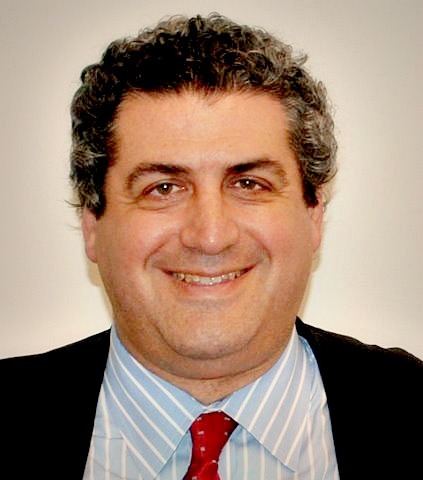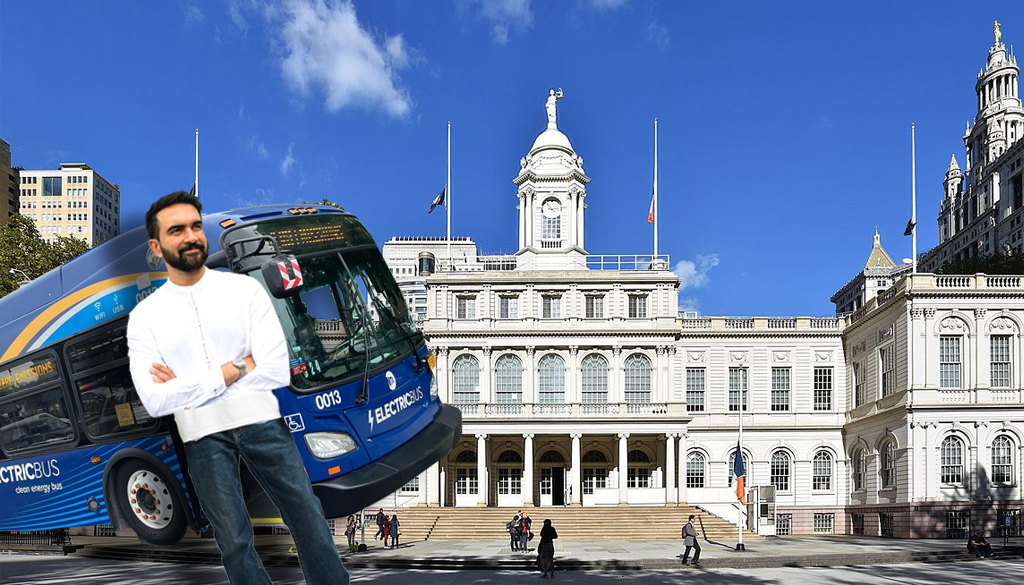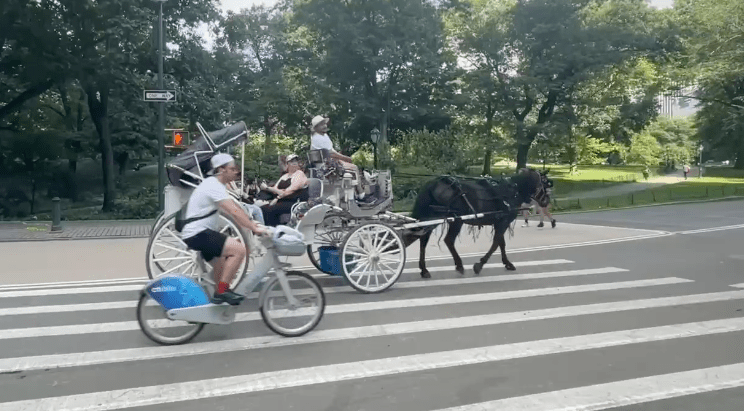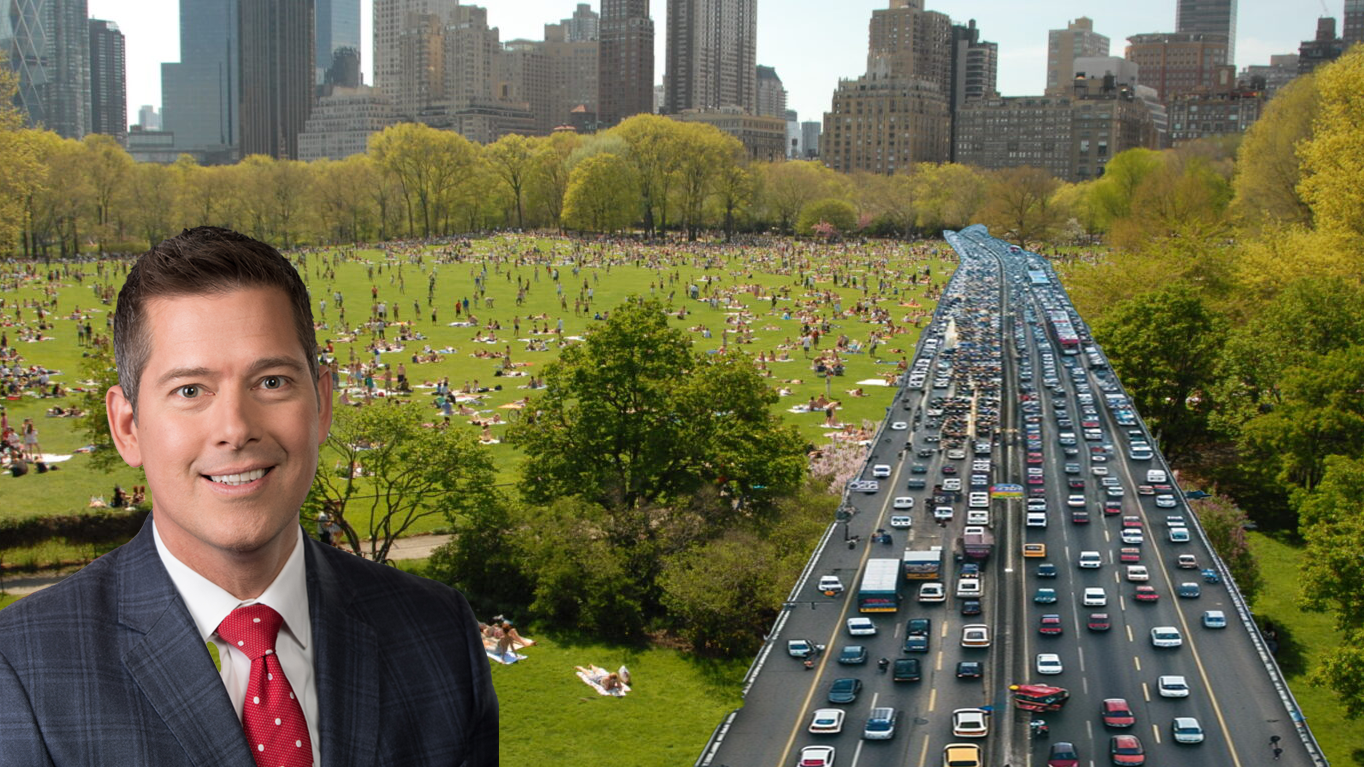We continue our series on City Council candidates with a Q&A with Democratic Party District Leader Marc Landis, who’s running to represent District 6 on the Upper West Side. Yesterday, we ran a Q&A with real estate executive Ken Biberaj. We will continue later this week with Green Party candidate Tom Siracuse and former Community Board 7 chairs Helen Rosenthal and Mel Wymore. Streetsblog did not receive questionnaire responses from Democratic State Committeewoman Debra Cooper and education activist Noah Gotbaum.

Streetsblog: The effort to bring protected bike lanes to the Upper West Side continues to face hurdles from some community board members. Do you think the lanes are a benefit for the neighborhood? Do you want to see them expanded and, if so, where?
Marc Landis: I support the increased use of bicycle transportation -- it's healthier for individual bikers, and reduces pollution for everyone in the city -- and bike lanes are a huge part of making that happen. Protected bike lanes can be part of the solution, if implemented carefully to ensure that the needs of small businesses are met, and that the interests of pedestrians, especially seniors and families with young children, are protected. I believe the best locations for bike lanes are on less-congested "residential" avenues and in the parks.
SB: Outgoing Council Member Gale Brewer has been a strong supporter of closing the Central Park drives to automobile traffic. Do you also support a car-free Central Park? If so, how would you like to see a car-free Central Park implemented?
ML: I support additional limitations on motor vehicles driving through Central Park, but we need to ensure that this does not result in additional congestion and pollution on the Upper West Side.
SB: Citi Bike was launched last month. Plans call for the program to be expanded to the Upper West Side in the future. Do you support the siting of bike-share stations in the neighborhood?
ML: I support bike-sharing stations on the Upper West Side, in close consultation with the community to determine locations. We must determine locations where demand will be greatest, and stations must be appropriately sized and located. The locations suggested by people on the bike-share website are a great start.
SB: On the East Side, Select Bus Service on First and Second Avenues has led to faster bus speeds. Do you want dedicated bus lanes and other service improvements for bus riders on the Upper West Side, and if so, where?
ML: I support Select Bus Service and dedicated bus lanes, and believe that Amsterdam and Columbus would be good locations.
SB: How can the Council best use its powers to reduce vehicular deaths and ensure traffic justice citywide?
ML: The City Council and the Department of Transportation need to work closely together on this issue to ensure that our streets are safer, and that our neighborhood needs are met. I support the idea of longer pedestrian lead signals, which is especially beneficial to two large groups of residents in this district -- seniors and children. We also need a lower speed limit, more speed reduction devices (red light cameras, speed bumps, etc.) and stronger enforcement to protect our neighbors from drivers who run red lights or otherwise recklessly drive through the Upper West Side. They should be used as an example of what is not acceptable in our neighborhood, and we should hold all of our community members to higher standards.
SB: The MTA is a state agency, but what actions would you like to see the City Council take to fund and expand transit service?
ML: One of my highest priorities is working closely with federal, state and city officials to ensure a dedicated stream of funding for mass transit in general, and the MTA in particular. NYC's contribution has failed to keep pace with the increased costs of operating the MTA. New York State and NYC both need to step up and do their fair share, so the MTA’s budgetary ills are not balanced on the backs of transit riders, many of whom are on limited incomes. The implementation of a sensible congestion-pricing program will provide the needed financial support to the MTA, while ensuring that the UWS does not become a parking lot for commuters.





